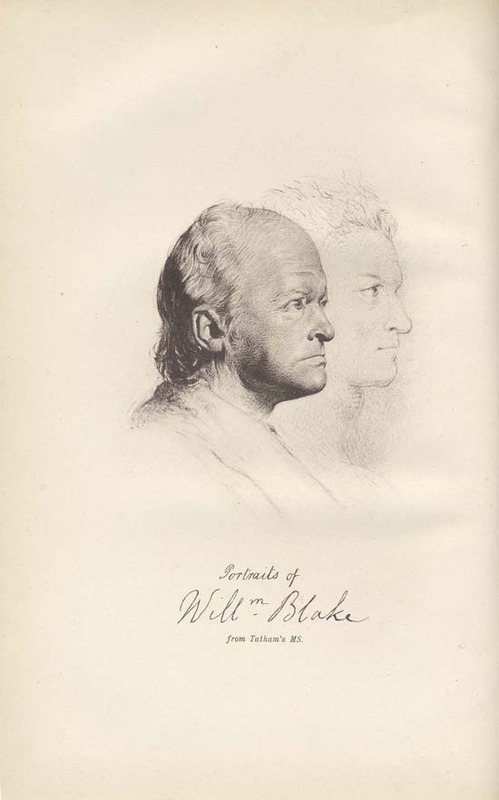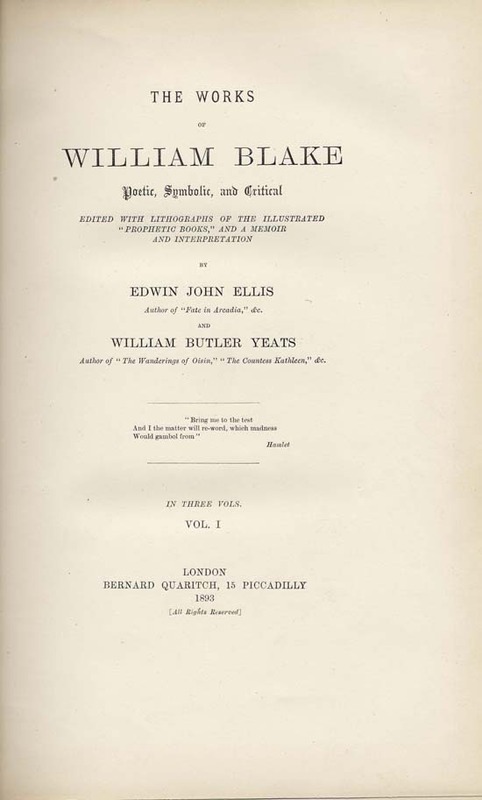William Blake
The Works of William Blake: Poetic, Symbolic, and Critical.
Edited with lithographs of the illustrated prophetic books, and a memoir and interpretation by Edwin John Ellis and William Butler Yeats.
London: B. Quaritch, 1893.
Special Collections, Golda Meir Library
(SPL) ND 497 .B6 E4, 3 v.
When Edwin Ellis, a friend of Yeats's father, invited W. B. Yeats to join him in a comprehensive four-year study of William Blake, Yeats became the first scholar to approach Blake from an occult perspective. The only payment Yeats received for the edition that resulted from this study was thirteen sets of unbound volumes from publisher Bernard Quaritch. Yeats’s scholarship and insightful readings were an important contribution to Blake studies and the work remains an important marker of Yeats's emerging philosophy. Yeats's most significant contribution is "The Symbolic System," which was completed by the summer of 1891. The manuscript is mainly in Yeats's hand.
This treatise on symbolism was the genesis of Yeats's ideas on the "Great Mind and Great Memory;" in it he forged much of his thinking about universal mythology and symbolism. Yeats's work on Blake convinced him of the primary role of the artist in the historical progression of civilizations and demonstrated how a major poet in the English tradition could incorporate occult systems as well as conventional Christian imagery and doctrine into the pattern of thought and feelings from which his poetry proceeded.
Rather than adopting Blake's symbolic system, Yeats set out to create a uniquely Celtic -- and later Irish -- system of symbols and beliefs as a substitute for the fading Christianity. Ellis and Yeats were the first to publish Blake's work Vala, or the Four Zoas. This is a single work in nine parts or nights. Passages from this previously unknown work made their way into the rituals of The Hermetic Order of the Golden Dawn, which suggests that Yeats collaborated with MacGregor Mathers in writing or revising some of those rituals.


